On January 22, 2023, Rio de Janeiro’s Sustainable Favela Network (SFN)* spent the day carrying out its first in-person activity of the year: a collective action to install a garden at the Jurema Gomes Batista Library in the favela of Morro do Salgueiro.
The activity involved 32 participants, 22 of whom were community organizers and SFN members from favelas across Greater Rio, representing: the Maria Pimentel Marinho Women’s Movement (MMMPM), Center for Popular and Social Education on Solidarity Economy in Mesquita (NESPES), Green Roof Favela, Plants in the Street, Conjunto Esperança, Salgueiro Neighborhood Association, Ricardo Barriga Project, Alfazendo, Rosa Reviver, Web of Peoples, Ser Alzira de Aleluia NGO, Embrapa Solos, and Conexão Penetra.
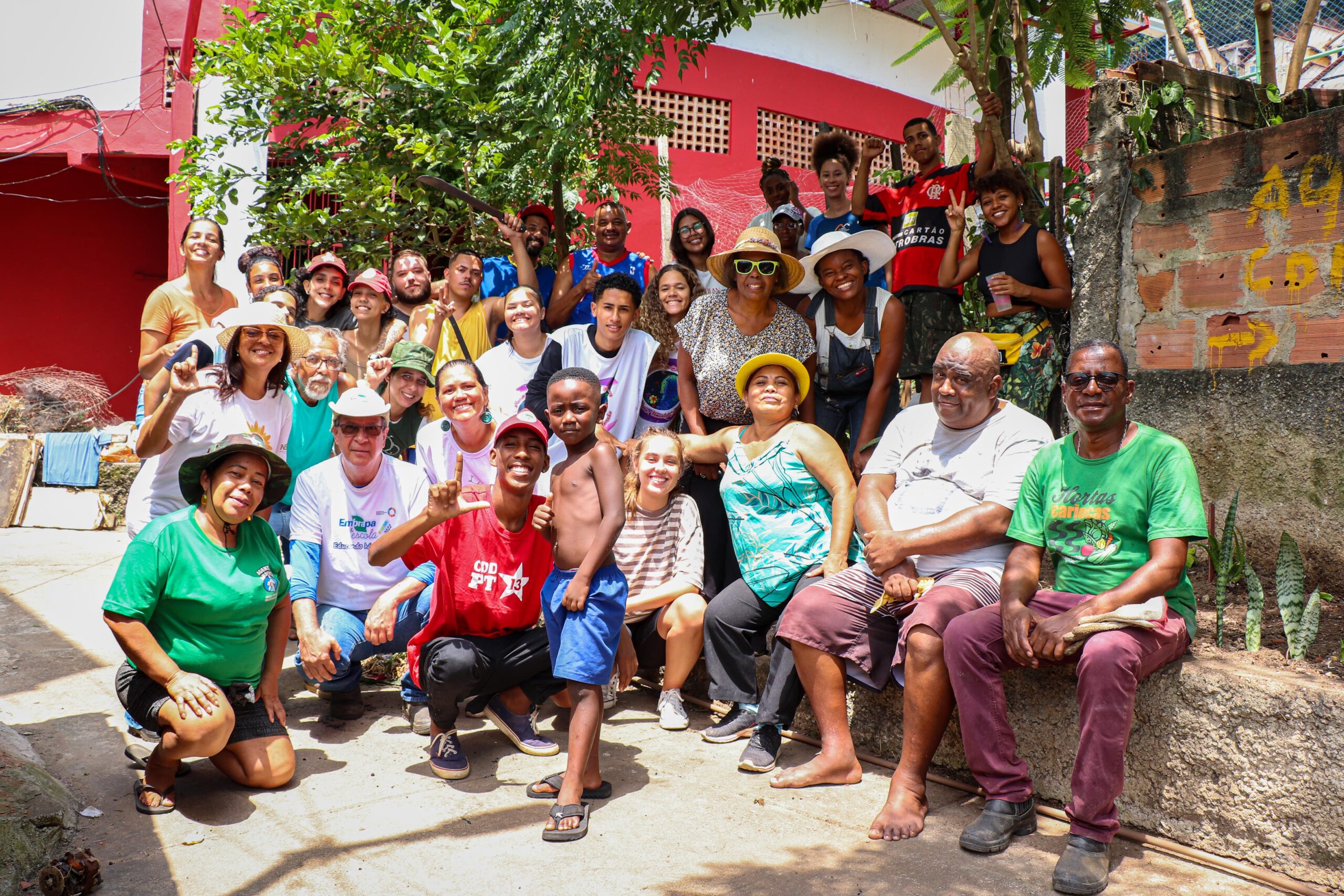
The collective action took place in what Salgueiro residents have named their Sustainable Attitude Garden. The team created two new beds for edible plants, restored the walls surrounding the garden, removed rubble, and planted ornamental plants around the space. The project was led by Denise Santos, a community organizer focused on raising environmental awareness and realizing grassroots education initiatives for the children of Salgueiro. Located alongside the Jurema Gomes Batista Library, the garden will provide more activities for the children who take part in the reading club, reinforcing their school learning, and teaching them about the history of their area, as well as offering healthy, high-quality free food to residents.
“The garden’s function is to serve the community. Everything produced here will be donated to the community and to those families experiencing food insecurity who don’t have everyday access to healthy food options and need natural food free from pesticides.” — Denise Santos

The day began with a welcome breakfast hosted by educator Anna Paula dos Santos, who also works at the library and was born and raised in Salgueiro. During the day the soil in the allotment was loosened and enriched with compost then covered with leaves and trimmings to help protect and retain the moisture in the soil ready for seeds and seedlings. Two new beds were created and the two existing ones restored.
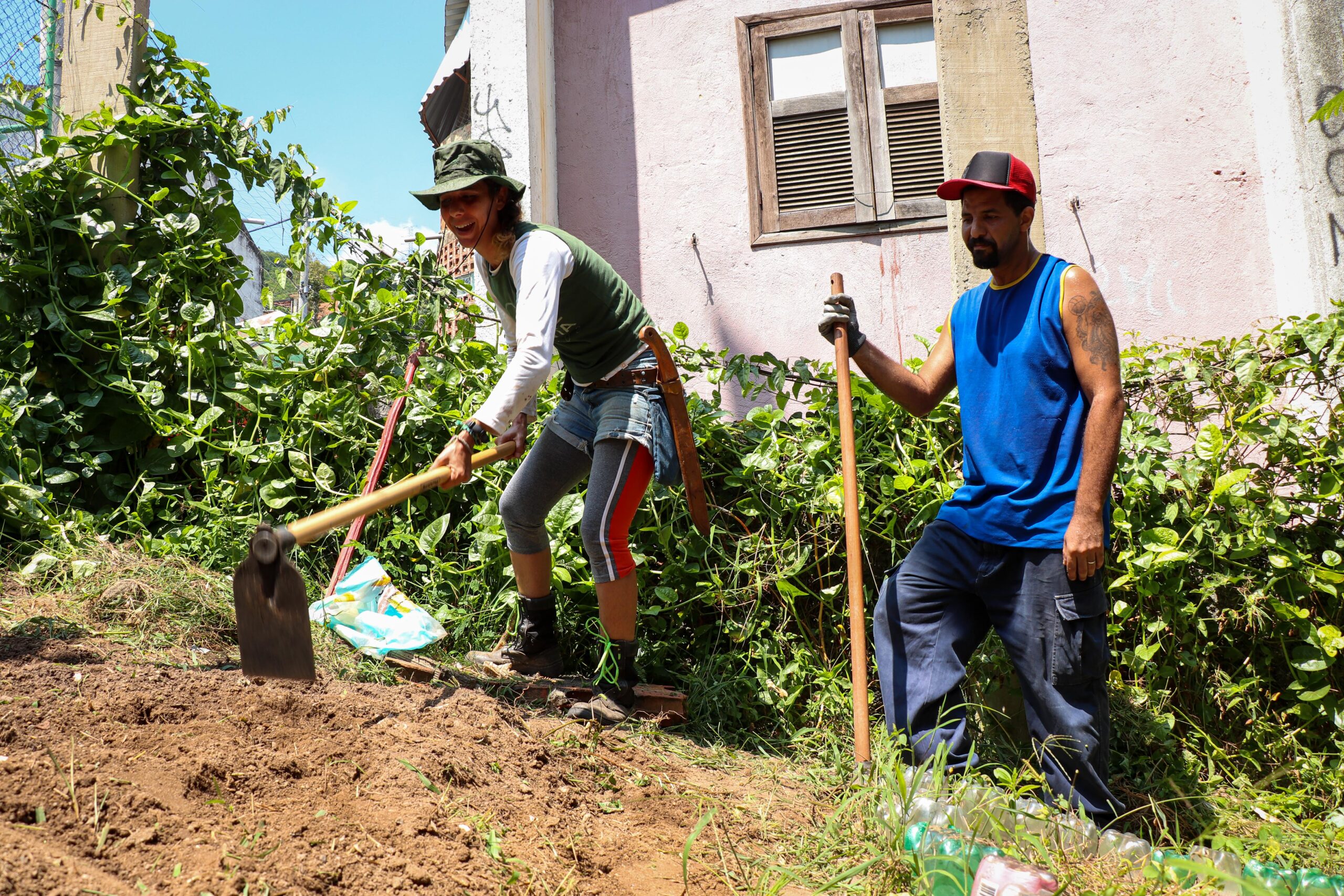
Edible plants were prioritized in the hope that they would soon produce foods to be distributed. The produce will include squash, corn, beans, boldo, and sponge gourd, and will also help contribute to the health of the soil. Multiple ornamental species were planted around the garden, such as snake plant, dumbcane, and mother of thousands, aiming to highlight the beauty of the area to the large number of residents that pass through every day.
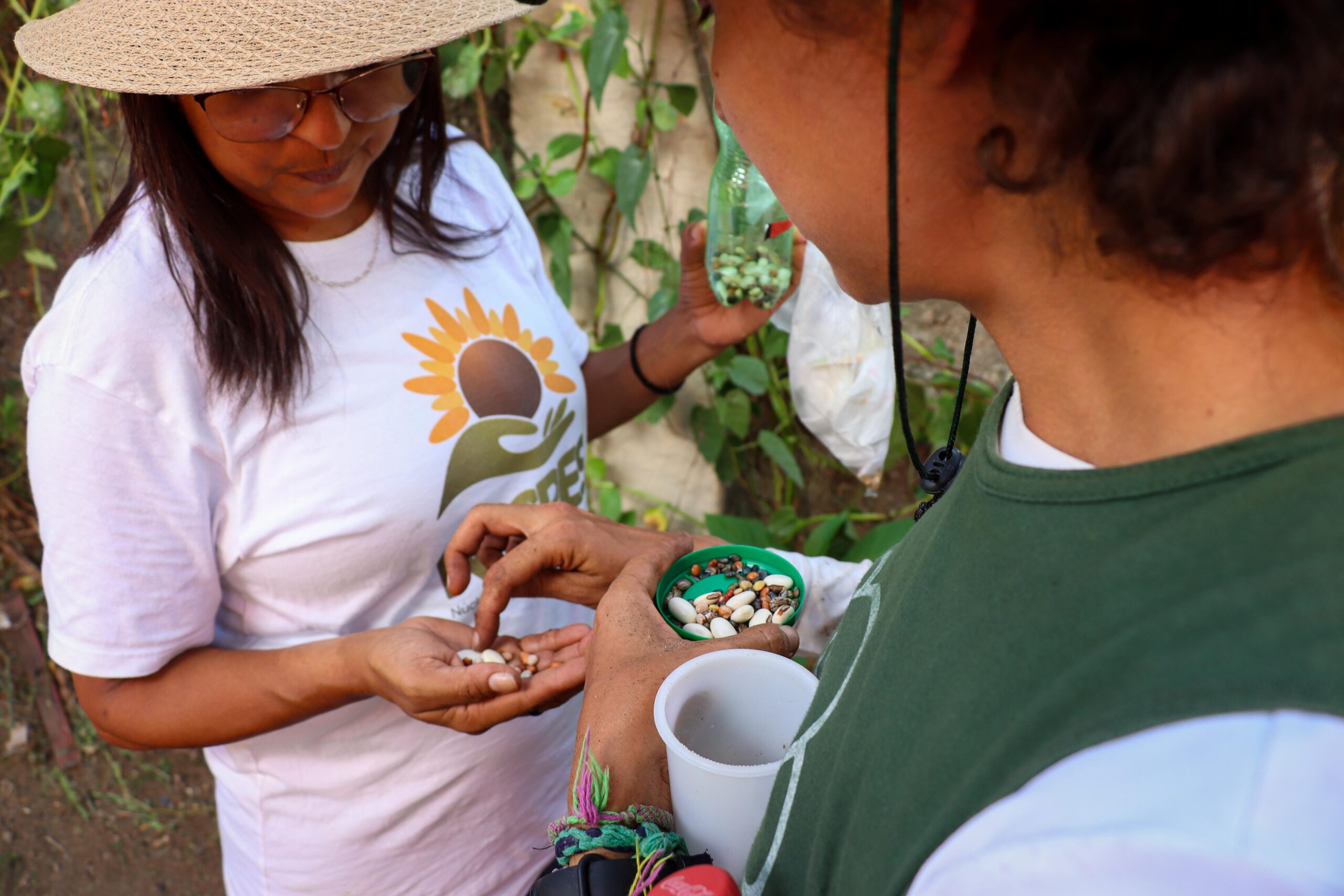
Several trees and bushes were trimmed to increase the amount of light in the garden and stimulate growth of new plants. All the material was utilized including trunks, branches, twigs, and leaves, which were set aside for the construction of new allotment beds and covering soil.
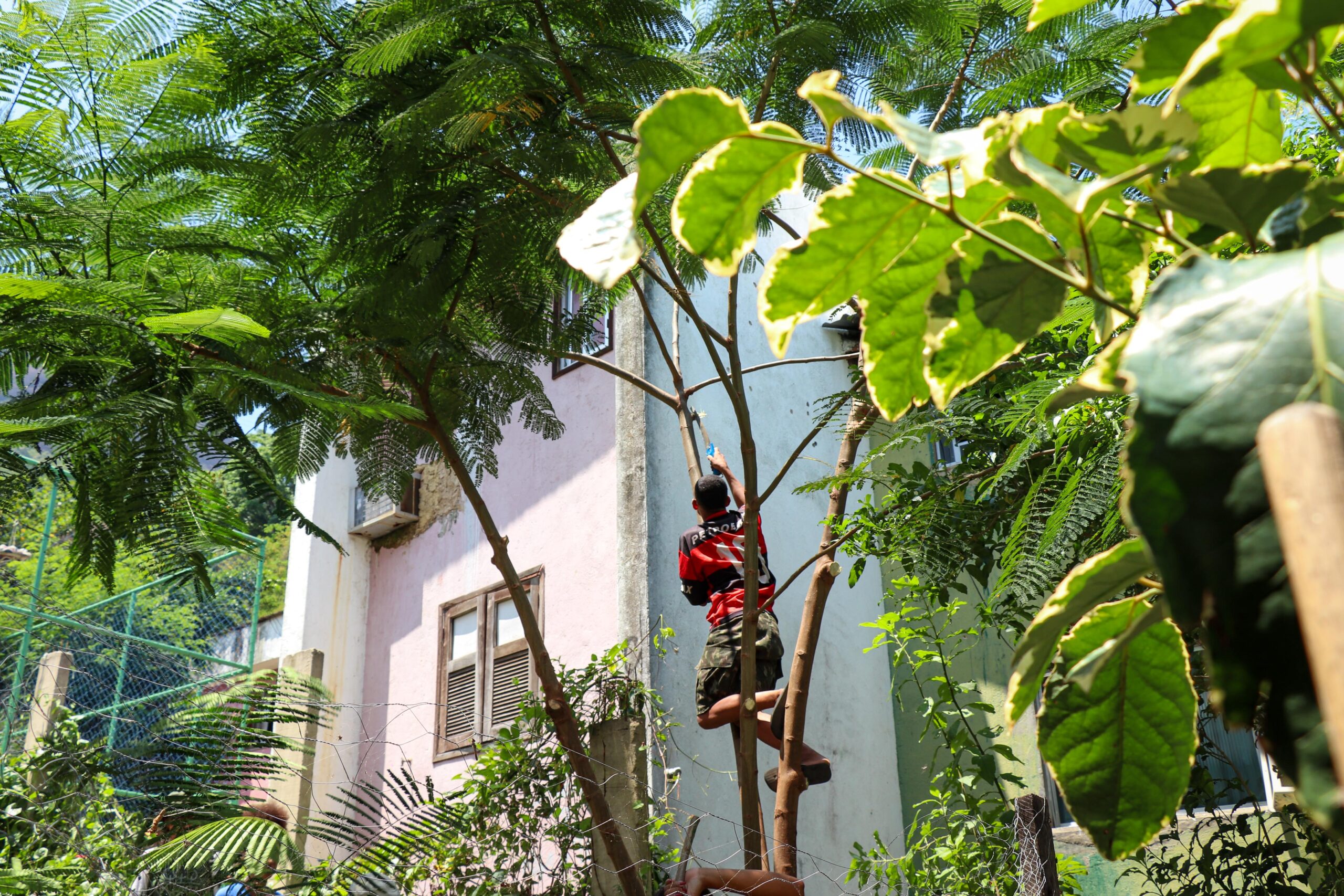
The break periods for lunch and rest saw the participation of other great local partners such as the Caliel Bakery. Chefs Marcel de Paz and Emerson Menezes prepared a traditional vegetarian meal full of warmth, with spices taken from their own gardens in Salgueiro. Throughout the day the waste and rubble which surrounded the garden and its allotment beds were collected, totaling around 20 barrels.
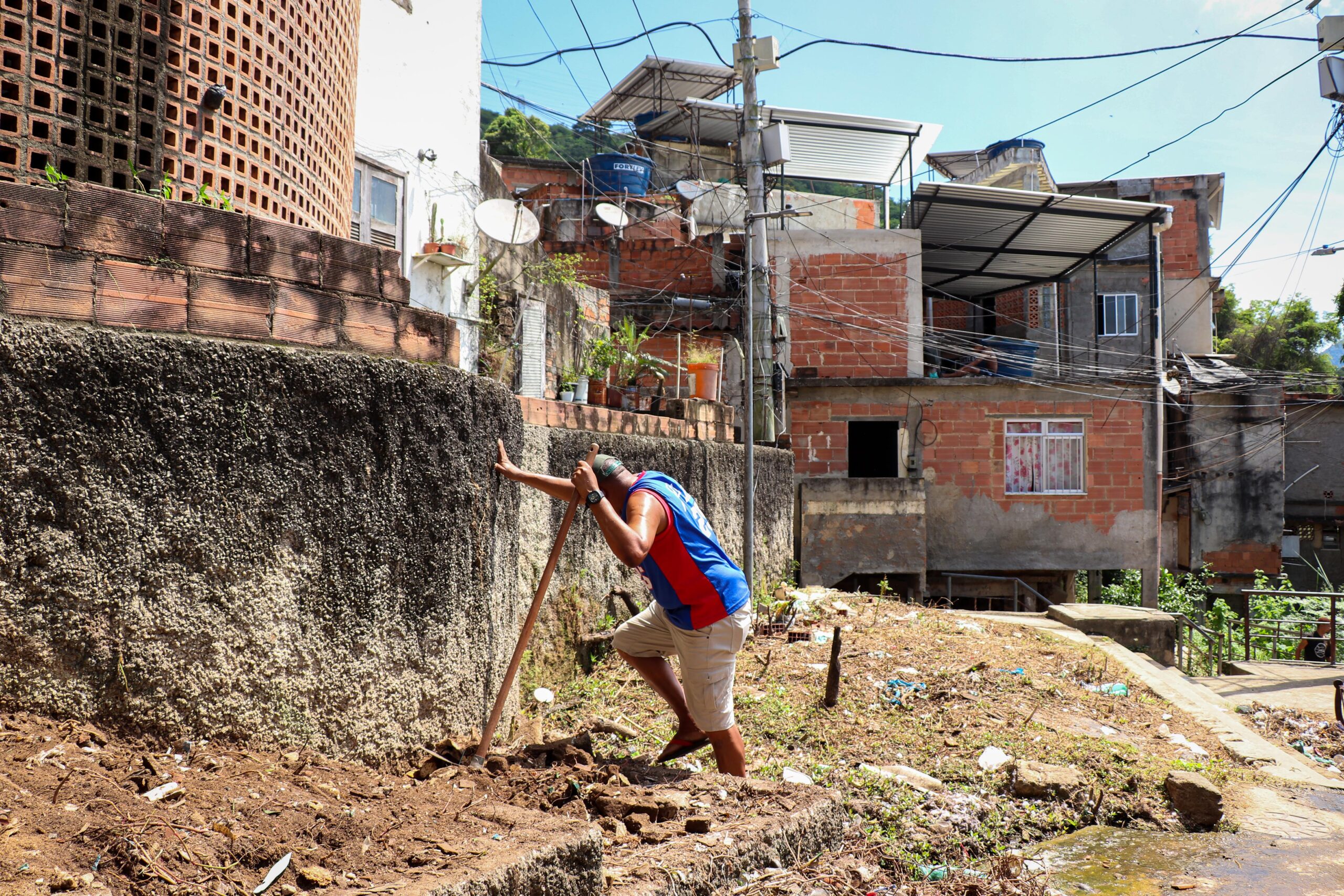
As well as being cleared of waste, all the side allotment beds connected to the garden were revitalized and planted with various seeds and seedlings.
Watch the Video Here.
Don’t miss the album below, or click here to view on Flickr:
*The Sustainable Favela Network (SFN) and RioOnWatch are projects of Catalytic Communities (CatComm).

